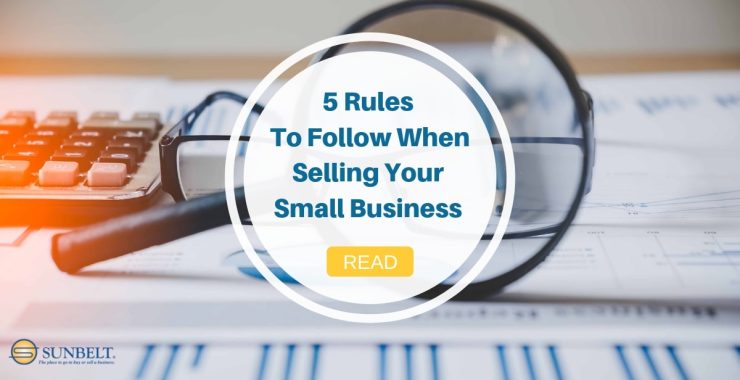General
4 Tips for Buying a Business During the Pandemic
The country has experienced quite a few changes since the coronavirus pandemic began back in the spring.
Stay-at-home orders and ongoing restrictions have pushed some businesses to the brink. Consumer behavior has also completely altered many industries — with some of these changes likely to stay for quite a while.
What the pandemic has also done is cause some business owners to feel like now is the time they want to sell. They may be worn out by the challenges the pandemic has brought, and they aren’t too excited for the challenges that remain ahead. This could be especially true among older business owners.
In no way should the pandemic be viewed in an opportunistic light. But, from an entrepreneur’s perspective, it will likely turn what has long been a business seller’s market into a buyer’s market.
If you are thinking of buying a business during the pandemic, here are four tips to keep in mind.
- Business Owners May Be Extra Emotional
It’s hard for business owners to separate the emotional connection they have with their company from the objective valuation of it. During the pandemic, this may be even more pronounced.
It could be especially true for those business owners who weren’t considering selling their business before the pandemic, but have just decided that enough is enough.
As a buyer, you need to be prepared that you could face this extra emotion during negotiations. While you should absolutely sympathize with sellers during these trying times, you need to separate emotions from the business deal.
Make sure that the deal makes sense financially to you first.
-
Investigate the Long-Term Performance of the Business
When buying a business, it’s important to analyze its financial performance. With the coronavirus pandemic, this could be a little challenging.
Sales, revenue, costs and profit for at least the last six months are likely significantly skewed compared to any time period before.
On the revenue side, sales may be considerably lower than normal due to the aforementioned government-mandated shutdowns. Even if the business was able to operate remotely, it’s possible that sales have suffered recently.
On the cost side, businesses may have fewer things on their balance sheet as they once did. Maybe they’ve saved on items such as rent, cleaning services and/or internet. Maybe they’ve been forced to lay off or furlough workers to remain above water.
This will make analyzing the true recent performance of the business very challenging. Simply focusing on business performance before the pandemic might not be good enough, either, as it may not be very indicative of what the future holds.
So, as you are analyzing the company’s financials, try to see if you can forecast what the business would have done in the last six months had there been no pandemic.
-
Analyze How the Business Will Be Affected in the Near Term
This, again, is where the pandemic has dramatically altered the normal course of action. Typically, you’d be able to make a fairly straight-line projection of how the business you’re thinking about buying will perform in the near future.
By looking at recent revenue and cost, contracts already signed for the next year and other factors, you could come up with a baseline performance number. Then, you could figure out what effect changes you would implement would have on this number.
Now, however, it’s much tougher to make this calculation.
When entrepreneurs project near-term outlooks for businesses they buy, the biggest thing that works to their advantage is whatever unique perspective they’ll bring to the business. This could include ways to save money immediately, or ways to increase sales.
A lot of what the near future holds in business today, though, is completely out of anyone’s hands. For example, could a second wave of the coronavirus in the fall or winter result in more wide-scale shutdowns? If so, could the economy be right back where it was in the spring?
There are always outside forces in play that affect business, but the pandemic is a different animal altogether.
If you’re thinking of buying a business now, then, it’s important that you factor in potential disruption to operations in the near term. That way, you can have realistic expectations about what the next year or so might bring.
-
Analyze How the Industry Will Be Affected Long Term
For the long-term outlook, you’ll need to analyze how your industry may change even when the pandemic is over. If the business you’re buying relies on your building to be packed with customers to thrive, will customers still come out in droves, or will they be hesitant to do so?
A gym is a great example of this. The way a gym makes money is by signing people up for memberships. But, will people still frequent large gyms as much as they did before the pandemic? Maybe they will; maybe they’ll be more cautious.
This exercise you’ll do will analyze different aspects of the business from an industry perspective. How a gym might be affected long term is different than that of a restaurant, a cleaning company or a software company, for example.
It’s possible the industry won’t be affected at all long term. It’s possible it will be changed forever. And it’s possible that the likely outcome will be somewhere in between these two extremes.
Figuring out the long-term effects of the pandemic on the business you’re buying won’t be an exact science. But, understanding and forecasting the long-term effects will be essential in weighing whether the business will be a good investment.
Sunbelt Business Brokers of West Palm Beach can help you buy a business in South Florida, guiding you from an initial phone call to closing. If you’re considering buying a business, get in touch with us today for a confidential, no obligation conversation.




